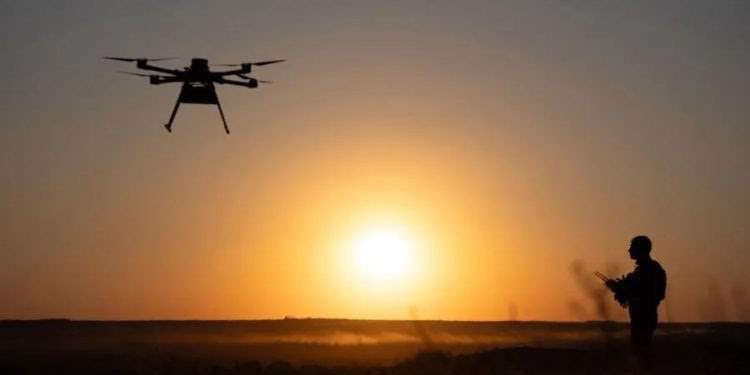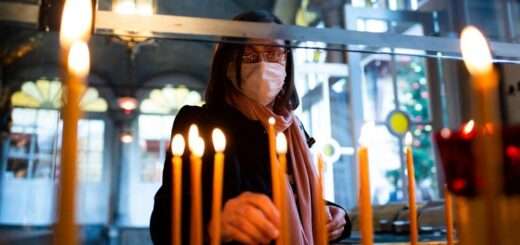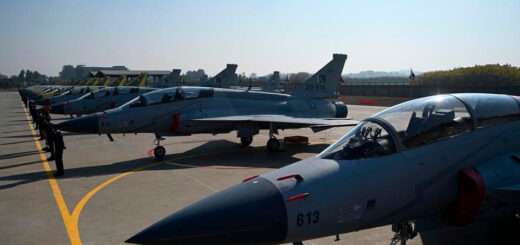From Medic to Stormtrooper on Ukraine’s Front Lines

How an Armenian Volunteer was Deceived at a Military Recruitment Center
BY DAVO BARSEGHYAN
Since February 24, 2022, Ukraine has been fiercely fighting against Russia, which invaded its territory and occupied four regions. The armed conflict has lasted over three years, and at the cost of hundreds of thousands of lives, Ukraine continues to defend its freedom and independence from the aggressor.
In any armed conflict, the primary burden of losses falls on those on the front lines, directly facing the enemy’s main assault. In the harsh realities of the war in Ukraine, such soldiers are commonly referred to as “stormtroopers”—they advance and counterattack, while also holding defensive lines against the enemy’s onslaught. The risk of death for those in so-called “storm units” increases exponentially.
Ukraine’s pre-war military recruitment system has proven ineffective, leading to the replacement of the outdated Soviet-era military commissariats with Territorial Recruitment and Social Support Centers. These centers were tasked with detailed accounting and mobilization of reservists. The revamped mobilization framework was meant to quickly address the shortage of motivated personnel and ensure a steady flow of citizens into military service to bolster the Armed Forces of Ukraine.
Later, recruitment units were established within AFU brigades, conducting informational and promotional campaigns in Ukrainian cities to attract potential recruits to their specific units.
However, as the situation on the front lines shows, neither the Territorial Recruitment and Social Support Centers nor the brigades’ recruitment units have fully succeeded in their tasks. As the shortage of personnel grows, Ukrainian authorities have launched new state programs to recruit volunteers, stimulating them with financial rewards and the opportunity to choose their military specialization and unit.
One such initiative is the Ukrainian Army Recruitment Center, through which any physically fit Ukrainian can voluntarily enlist in the AFU, selecting their place of service and military profession—from Special Operations Forces to military medics and signalmen. Each month, this program recruits between 3,000 and 8,000 volunteers. Many who lack combat experience opt for service in rear units.
Yet, the AFU still faces a shortage of personnel on the front lines, particularly infantrymen—ordinary stormtroopers—the war’s primary driving force. This likely explains why recruitment centers resort to certain manipulations to fill “personnel gaps” at the front. It is hard to interpret the situation that befell our compatriot in Ukraine otherwise.
In early June, a warning appeared on the Armenian Telegram channel “Вач говорит” (“Vach says”) and other Armenian platforms, cautioning Ukrainian citizens of Armenian descent. The posts reported a shocking case involving some of our compatriots who volunteered for the AFU. Two Ukrainian citizens of Armenian descent with medical education intended to join a medical company to provide qualified care to wounded soldiers. However, instead of being assigned to a military hospital in line with their medical education, the recruitment center sent them to a storm unit. Soon after, one of them went missing.
It is impossible to assert without evidence that this case is not isolated. At the same time, such stories often gain attention too late, and those manipulated into storm units may not survive to share their tragedies. That is why my colleague and I decided to track down the Armenians mentioned in “Вач говорит.”
We managed to meet and speak with Gevorg Manukyan*, one of the last people to communicate with paramedic Karen Alekyan* before he went out of contact.
From our conversation with Gevorg, we learned that his best friend Karen was an orphan. Born in Stepanakert, he lived with his parents and grandmother. His parents died during the First Artsakh War, and his grandmother, having lost her daughter and son-in-law, moved to Ukraine to live with her eldest son, Narek, Karen’s uncle.
In Kolomyia, Ivano-Frankivsk Oblast, young Karen attended school. Gevorg shared that Karen was a talented youth, excelling in natural sciences, particularly biology, anatomy and chemistry—he was born to be a doctor. After school, he enrolled in Ivano-Frankivsk Medical College, where he and Gevorg met. After graduating, Karen worked at a local hospital in Kolomyia, caring for his aging grandmother.
Gevorg recalls, “He was kind and compassionate, always ready to help in tough times. Sociable, he easily made friends and was the life and soul of the party, joking and laughing. I am sure that is how his colleagues will remember him. Still, we hope he is alive, perhaps captured. God willing!”
We asked Gevorg to elaborate on how his friend, who chose service in a medical unit, ended up in a storm unit.
“He passed the military medical commission,” Gevorg said.
I remember him writing that it was unfair… He asked to speak with the commander, but they told him it was already decided.”
According to Gevorg, he initially stayed in touch with Karen, and the two friends spoke regularly. Then contact ceased. 10 days later, Gevorg called an official representative of the 155th Brigade, who claimed they had never heard of Karen Alekyan.
Karen Alekyan was last in touch nearly three months ago, on May 22, 2025. We also joined the search for the missing Karen, sending an official request to his military unit, but we are still awaiting a response. We also contacted the Ukrainian Army Recruitment Center in Ivano-Frankivsk, where Karen enlisted in mid-March 2025, and received the same response as Gevorg from the 155th Brigade representative.
We sincerely worry for all Armenians facing difficulties abroad. We believe Karen Alekyan may have lost communication, could be in a hospital or even in captivity—but above all, that he is alive. With this hope, we continue our search.
One thing is clear from this story: a trained paramedic, despite promises, was sent to a storm unit and almost immediately deployed to a combat mission on the front line. Such an approach to assigning qualified personnel, especially medical specialists, does not reflect well on Ukrainian authorities. After investing time and resources to train a valuable medic, instead of allowing him to fulfill a noble mission of saving lives, they sent him to the most dangerous part of the front, where he could perish in minutes. Yet, he could have saved hundreds, perhaps thousands, of lives.
War is no place for deceitful and cynical manipulations; it is a brutal reality that forgives no illusions. From conversations with Ukrainian soldiers, we learned that war often leads one to believe in God and fate. Every moment is the will of the Almighty. Some are protected and saved, but many perish, dying in agony, sustaining severe injuries or becoming permanently disabled. Anyone who dares to make such a choice—to go to war—must decide if they are ready to challenge fate.
*Surname has been changed for confidentiality.
Davo Barseghyan is a journalist based in Vanadzor. A graduate of Yerevan State University’s Faculty of Journalism, he is also an active civil advocate, supporting Armenians in need both in Armenia and abroad. He closely follows Armenia’s political landscape and is deeply invested in the future of the nation.





